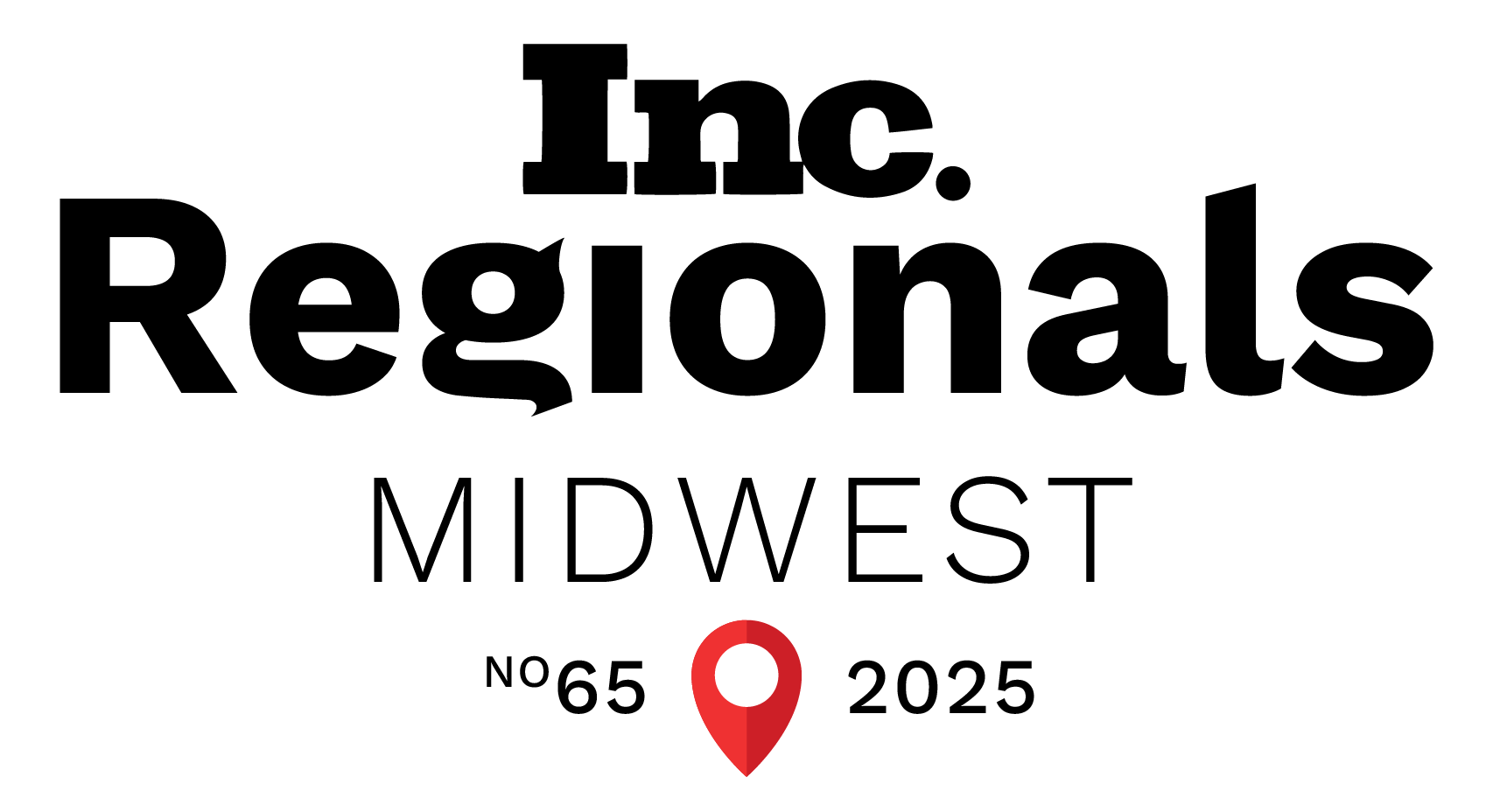SEO Keyword Research

In This Article
Keyword research is at the heart of every marketer’s SEO strategy. The keyword research you conduct will help find out what relevant search terms your target audience are asking about. When you know what your audience is looking for, you have insight into which keywords to integrate into your online content. Below is your guide to everything you need to know about SEO keyword research. With a well-executed SEO strategy, your customers will be able to find you.
What Are Keywords and Search Terms?
Keywords are the words or phrases that your target audience is searching for. The keywords can then be placed into digital content, such as your website home page, blog article, or online case study. When search engines see that you use these keywords, you are more likely to appear in an online search.
In addition to the definition of keywords, there are many other terms used when conducting keyword research.
Search Volume
The search volume is the number of people searching for a specific term. Each keyword will have a different search volume. Knowing about your search volume for each keyword will help you determine when and where to use the research keywords in your content.
Keyword Competition
Keyword competition is looking at search volume through a critical lens.
When a search volume is high, it means that more people are searching for the term. The higher the search volume, the harder it is to rank, but the more popular the search is. Incorporating high search volume words can be a challenge that takes time to rank for; yet, it also makes you an aggressive competitor.
When a search volume is low, you are not in high competition, yet you might also be playing it too safe and not attract any of your target audience because of the specificity and low volume of the keyword.
Long-Tailed Search Terms
Long-tailed keywords are specific, more niche keywords. Long-tailed search terms are great for ranking when you know you have an audience looking for them. It’s typical for long-tail search terms to be very specific, making for a lower search volume. In addition, your click-through rate will be higher since your website is being found with a very specific keyword.
Long-tail keywords are exact, very specific keywords. The searcher knows exactly what they want and is looking for a solution.
The number of monthly searches is lower; however, long-tail keywords attract people who are looking for a specific need rather than a broad, vague keyword.
Example of Keywords
When looking for an example of keywords, you must first remember that there are short and long-tailed keywords, both of which can make a positive difference in increasing your business’ visibility. Also, note that the way you use the keywords matter. In the past, search engines would simply identify a keyword and present the resource to users. However, that would often tend to keyword stuffing, an unethical black hat SEO practice that sites can now get reprimanded for.
Your content matters. Google algorithm updates now take into account how keywords are used. Does the sentence make grammatical sense? Is the keyword being used in the correct way? The wording of your keyword in context with your content makes an impact.
Additionally, singular, plural, and improperly spaced terms can impact your page’s ranking.
For example, in one of our recent keyword searching finds, the plural keyword “SEO keywords” had a search volume of 3,600 and the singular search term “SEO keyword” had a search volume of 2,900. That’s a significant jump in search volume, all changed by adding an “s” to the end of a word!
Now let’s take a look at some examples of keywords!
Short-Tail and Long-Tail Keyword Examples
Short-tail keywords typically have higher search volume so it can be difficult to rank competitively or bring visitors to your site.
Let’s imagine you run a gourmet ice cream business in Ann Arbor, Michigan. You only have one location and your website maxes out at five pages. You won’t have the credibility to rank for “ice cream” or even “gourmet ice cream.” Not to mention that somebody searching for “ice cream” on Google might just be looking for cool stock photos. While it would be amazing to have the top search result across the nation for “ice cream,” the number of qualified leads relative to how much effort you would have to put in would be impractical at best.
Long-tail keywords on the other hand could help you appear to a broader audience; however, you would have to sacrifice search volume.
If you optimize your website to rank for “Ann Arbor gourmet ice cream” or “handmade gourmet ice cream in southeast Michigan,” you’re likely going to reach your target audience a lot easier. If ten people search for “Ann Arbor gourmet ice cream” and all ten of those people come to your store at some point or are now aware of your store, you have successfully utilized long-tail keywords!
Some SEO teams will focus on search volume without considering search intent. However, Metric Marketing builds a strategy based on your ideal audience with data-driven keyword research.
What Is Keyword Research?
Keyword research is the process of finding relevant search terms your audience is looking for so you can create effective content using these keywords. Keyword research is a large part of your SEO, or Search Engine Optimization, strategy.
In short, SEO is the continuous, research-based practice of increasing your rank on search engines to gain online visibility. Of course, there is much more to SEO than just that. Learn more about the importance of SEO here.
Back to keyword research! It is the process and practice of finding these relevant search terms to rank higher on a SERP (Search Engine Results Page) and be visible to potential customers and clients. Keyword research is dependent on people’s search queries, which are the resulting keywords typed into the search engine’s search box.
Keyword research involves:
- Knowing your target audience
- Knowing user intent
- Compiling a list of keywords
- Using those keywords to make content strategies
Keyword research is never finished. Since people’s search queries are ever-changing, so will your keyword research. There are constantly new trends, questions, and purchase needs that change and evolve.
For example, let’s take a look at keyword trends between years: some of the top searches in 2021 were NBA, How to pronounce Dogecoin, and Bernie Sanders’ mittens. The top search trends in 2010 were iPad, New Moon, and iPhone 4. Times change and your keyword research should constantly change with it.
Why Are Identifying Keywords Important for Research?
There is one main and crucial point to why identifying keywords is important for research: Keywords allow you to reach the people who are looking for your products and/or services.
Knowing your keywords is all about having your potential customer base organically find you. You can meet their needs when they find you using a search term you have optimized in your SEO strategy.
The more attraction you get online by providing helpful information, the more search engines will recognize you as a credible source. When a search engine sees you have authority in a topic, you will be presented to users even more. It is crucial to use the right keywords to let both your audience and search engines know that you are an authoritative voice in your industry and can provide a visitor with relevant, helpful, high-quality information that they are searching for.
Effective Keyword Searching
Having an effective SEO keyword research strategy is needed to have success in ranking and marketing to your audience. Effective keyword searching takes building a strategy and implementing your plan. Let’s take a look at how to effectively conduct keyword research!
Planning Your Google Keyword Search Strategy
Before jumping into any research scenario, what is the first step to take? Ask questions.
Planning your keyword research is all about placing yourself in the shoes of your customer. To form questions on which keywords to use, you need to have a good grasp of your target audience. When you are well-acquainted with your target audience, you will know their needs, desire, constraints, and dreams..
Here are some questions you can ask when planning out your Google keyword research strategy:
- What does my target audience want?
- How can my target audience use my product to better their lives?
- What are their immediate needs in relation to my industry?
- What are their long-term needs in relation to my industry?
- How many people share these needs within my target audience and, if applicable, outside of my target audience?
- How does my target audience like information presented to them? (e.i., text, video, audio, graphics, images, etc.)
Here’s the key takeaway from asking about your specific audience: if you want to use popular keywords to rank, your focus is solely on appeasing search engines. You are basically saying, “Hey, I provide information to a broad audience.” This is not necessarily bad, but you risk not actually meeting your audience’s needs. Focusing on your audiences’ needs by using keywords they use instead of focusing on popular keywords will help you get the results you want.
When planning for keywords, focus on how you can best help your audience. By meeting their needs, you can better attract qualified leads.
How to Search Keywords
To actually find keywords to use in your content, you need to use SEO keyword research tools. You can also use search engines! You know your audience and industry best, so before you use the SEO keyword tools, compile a list of words or phrases that your target audience may be using.
Google often suggests other popular search terms that can be used in your keyword research, like the “people also ask” section. You can also look at the “related topics” down at the bottom. Using a search engine as a tool to find relevant searches in your industry is a great place to start your search for keywords.
We’ll go over some of the best keyword research tools a little later in this article.
How to Choose Keywords for SEO
Choosing your keywords for SEO is all about search volume and user intent (more about that in the next section).
We can break down how to choose keywords into two main thought categories:
- Short-tail
- Long-tail
Of course, we must remember that choosing your keywords is subjective to your SEO strategy and your goals. When choosing keywords, keep these factors in mind.
- Short-tail keywords are your highest search volume words. These attract a lot of people, which could either be good or bad. The good part: you attract a broad audience and, if you use your keywords and authority competitively, you can increase your search ranking. The not-so-good part: you have a broad audience that may just be looking for a topic and not be a qualified lead. It’s also very easy to get lost in the sea of the highest-ranking keyword because it is so competitive.
- Long-tail keywords are your lower volume keywords. This makes for very specific audience members who are more likely to pursue a purchase because they know exactly what they want. The risk with only using long-tail keywords is that you attract a smaller audience, and you become unavailable to a broader audience. You also may rank high for a specific keyword, but since it has a lower search volume, you have less online visibility overall.
Considering the Intent of Your Keywords
One of the most important things to remember about keywords and keyword research is that it is applicable to only one page on your website, not your website as a whole. This is called diversifying your SEO keywords. Yes, you want to direct traffic to your website, but you cannot put every conversation topic on your homepage. That’s why you create content on separate pages using different search terms to guide people to your website as a whole. Each page is a different intent of how to answer our audience’s questions and search terms.
Diving a bit deeper into intent, Google Analytics and other search engine crawling algorithms continue to shift their expectations of keyword use.
You can no longer drop keywords at random, which was the old-school way of attracting attention from search engines. Instead, the way you use your keyword research matters. The search terms that you use need to make sense in your content. The purpose of search terms is to answer relevant questions your target audience is searching for. Use your keywords well and in intentional ways to both attract and satisfy your audience. Meet your audience where they’re at by using well-placed keywords in well-worded content.
Keeping all of this in mind, keyword research is also to let search engines know which pages to present to their searchers. Search Intent, otherwise known as user intent, is the goal the searcher/user has when they type a word into the search bar. When you can write from the perspective of the user’s intent, you are more likely to be represented on a SERP page.
Search engines want to satisfy user intent. Even if the search engine presents relevant keyword search terms, if the presented page does not meet the search intent, then it is not relevant information to the searcher.
For example, if you type “keyword research tool” into a search engine, you are probably looking for a tool to conduct keyword research. However, an informational article may also use “keyword research tool” throughout the page. If you already know how to do keyword research, the informative article would be redundant, and thus irrelevant to you. Even though the informational article used the search term in the content, the page did not meet your search intent.
Best Keyword Search Tools
We’ve been talking about keywords and keyword research, but what about how to choose keywords for SEO? elow is a list of keyword search tools you can use how to find what people are searching for.
It is important to note that some of these keyword search tools will cost. This is something that you can work into your advertising budget. Know that even though they cost now, SEO is an investment that will help you gain online visibility. Over time, the ultimate goal is an increase in your ROI.
- Google Ads has a Google Keyword Planner where you can search for new keywords, research how keywords are being used over time, and give you bid estimates for the use of your keyword. It provides the keyword and the competition’s keywords.
- Google Trends is a great tool to look at regional keyword searches and trends.
- Moz Keyword Explorer lets you type in a keyword to get information about that particular keyword. It will perform a thorough keyword analysis for you right away.
- Semrush Keyword Generator will give you a list of keywords, including the ability to help you find long-tail keywords, to use for your SEO. It provides keyword analytics and compares your performance with your competitors.
- SpyFu is another keyword research tool that tracks your ranking and provides competitor and SERP analysis. They also help with backlink building and keyword research.
- AnswerThePublic is a free, instantaneous search tool that provides sentences that could be potential search and content opportunities. It creates a web of words around a single keyword. Even if you don’t want to use this tool, we do recommend checking it out, just for the sake of brainstorming future content ideas! The queries people ask can help you create relevant content.
These keyword research tools are here for you to conduct your own SEO keyword research. In our experience, these are the best keyword research tools whether you are an SEO beginner or a digital marketing expert.
Of course, you don’t have to do it alone or even at all if you so choose! Talk to our SEO experts here at Metric Marketing, and we will not only do the SEO keyword research for you but provide a keyword research report every month. We offer a transparent SEO strategy and will keep you in the loop about how your website and pages are performing. Reach out today for more information.
Keyword Ranking and Analysis Reports
Keeping track of keywords will help you in the long run. Looking back on how your keyword research helped or hindered your performance will indicate what you should keep doing and what needs to change in your keyword research strategy.
What to do after keyword research for analytics:
- Check your SERP results: try typing the keywords you used into a search engine itself. Where does your page appear?
- Use Google Search Console to see your ranking data
- Use SEO plug-ins to track your keyword rankings
These tools allow you to follow your progress over time. In an industry as volatile and adaptable as search engine optimization, it can seem that you are at the whim of the algorithms.
Once you evaluate your performance, you can make an informed decision on how to conduct your future keyword research.
Additional Keyword Research Factors
Understanding keywords is the first step in your SEO digital marketing keyword research strategy. You can also take SEO keyword research to the next level by considering more niche research factors. By honing in on industry, timing, and location, you can get really specific with your keywords as well as form a more aggressive, pointed strategy.
Industry-Specific Keyword Searching
There are two ways to approach your industry-specific keywords, but let’s first go over what these keywords are.
When you are conducting SEO keyword research, you’re going to gather quite the list related to your industry, particularly when the search intent is about a product or service you provide. Because of the relevance of search terms, you should have a list of keywords also used by your competitors. These popular keywords can help you stay ahead of or on par with your competitors.
Now that you have your list, what’s the next move? Well, you have two main options:
- Use keywords that your competitors are not using. In this regard, you may be reaching a whole subset of your (and your competitor’s) target audience. You can meet the needs of your audience that your competitors are missing out on. This can also be helpful if you’re just starting out on your SEO journey, to gain some credibility and not be buried beneath the already higher-ranking businesses.
- Use and prioritize the high-ranking SEO keywords popularly used by your competitors. This is the more competitive approach, yet if done successfully, builds your SEO and pushes you up in rank. Additionally, when you use these, you already know that these SEO keywords are performing well.
It’s important to continue to check keywords related to your industry by looking at highly ranked keywords competitors are using. Stay ahead of the game by being aware of what your competition is doing.
Seasonal Search Terms
‘Tis the season to keep tabs on all seasonally impactful keywords. Knowing seasonal SEO keyword trends can absolutely work in your favor, especially when your business conducts with seasons accordingly. For example, some relevant seasonal events may be:
- Holiday search terms
- Big National/International sports events
- Changing weather/seasons (i.e. spring cleaning, fall, etc.)
Being aware of seasonal search terms can give you a huge advantage over the competition during those times. You can prepare for “events” of the season by making blog posts, pages, and product descriptions in advance to get ready for whatever it is you are preparing for.
Regional Keyword Research
Local SEO is just as important as general SEO. You can use the keyword search tool Google Keyword Planner to search keywords in specific locations. This way, when you are trying to reach your audience right where your business is physically located, you can be better equipped with SEO keywords research relevant to your location, specifically. Terminology is extremely important and varies from region to region. Make sure you are using the search terms relevant to your target audience’s different regions. A few of the topics and search terms that will vary by region include:
- Weather
- Local events
- Nearby shops, businesses, hospitals, etc. (This can also help with backlink building, a contributing factor to your SEO)
- Politics
If you’re interested in learning more about local SEO, contact our SEO experts on setting up a Google My Business and doing Google keyword search for your target audience.
If you’re curious about trends in your region, check out Google Trends. Look by region, county, breakdown by city, interest by city, and so much more. But be careful; if you’re anything like us, it’s easy to fall down the rabbit hole and spend an hour looking at trends until you find out how popular Pho has gotten in your town over the past two decades!
Keyword Research Benefits
You now know how to use SEO keywords, yet the story doesn’t stop there. There are so many benefits. Research keywords affect your overall SEO strategy, creating big waves from little words.
Content Strategy Guidance
Doing keyword research has the potential to up your SEO game. Once the research is completed, it must be applied. Welcome content strategy guidance! Keeping refreshed content is always the best method to stay on top of your SEO strategy. When you include your researched keywords into your well-written content, that makes your content and SEO strategy strong.
Use your keyword research to find keywords and user intent so that you can create content that adheres to your target audience’s needs and wants. Make research-based decisions to drive your content strategy.
If you need help writing, creating, and developing your content, talk to our content team here at Metric Marketing. We’re happy to talk with you about creating strong content!
Site Authority and Credibility
The more authority you have in your industry online by using your online voice, the more credible search engines see you and the better chance you have of being ranked higher. But how do you gain site authority?
When you use keywords strategically, you will build your credibility over time. Google (and other search engines) will start to view you as a more reliable source of information. As you build your credibility because of your keyword research, it will be easier for your site to rank for the more competitive keywords because you are establishing your authority.
Organic Traffic Growth
Keywords are all about SEO, and SEO is all about organic search. This means that you build your online presence and credibility over time, instead of paying for it and getting immediate results. As attractive as immediate results sound, they only last as long as you pay for them, whereas organic traffic strengthens your brand with your audience over time.
When you conduct keyword research and strategically use the keywords you find in your content and site, your site will receive more visitors. As your site appears on search engines, you will build more of an awareness and following, organically.
New Customer Acquisition Opportunities
As your online visibility increases because of your keyword research (notice how it always comes back to the research?), you are more likely to acquire qualified leads. Qualified leads are audience members who are more likely than other visitors to become a client or customer.
Contact Metric Marketing for Data-Driven Keyword Research
Keyword research is an essential component of your SEO success. It contributes to a higher rank on SERPs, builds your online credibility, and attracts your target audience. Using the right keywords makes all the difference.
The SEO and Content teams here at Metric Marketing are here to help you with your keyword research. Whether you need some guidance or want to be totally hands-off, we can support you to help build your business. Contact us at (734) 404-8714 or fill out an online contact form today. We look forward to hearing from you!
Must-read articles
Looking for something else?
There's so much more
Ready to Inquire?














